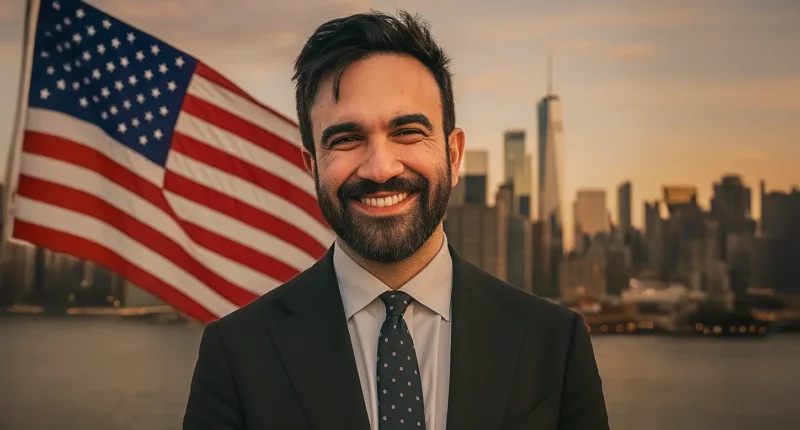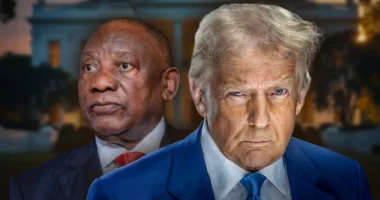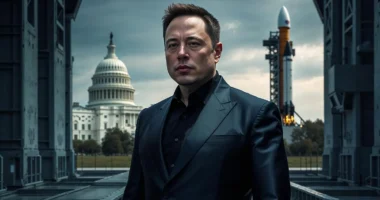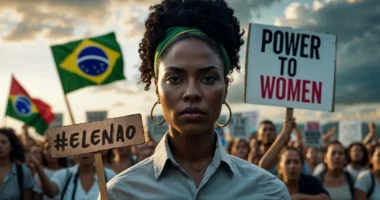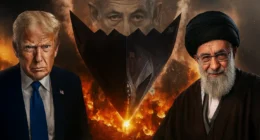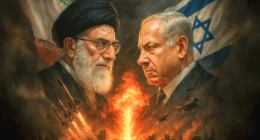When voters in New York City cast their ballots in the Democratic primary on Tuesday, June 24, 2025, few political observers expected what would unfold. A young assemblyman from Queens, previously known only within progressive circles, delivered one of the most stunning political upsets in recent American history.
Zohran Kwame Mamdani, known as Zohran Mamdani, just 33 years old, not only defeated the heavily favored former Governor Andrew Cuomo but did so by a commanding margin that sent shockwaves through the Democratic establishment nationwide.
From Uganda to Queens: The Making Outsider
Zohran Mamdani’s story begins far from the bustling streets of New York City. Born on October 18, 1991, in Kampala, Uganda, he arrived in America as part of a family already steeped in intellectual and creative achievement. His father, Mahmood Mamdani, is a distinguished political scholar and professor at Columbia University who has spent decades examining colonialism and political violence in Africa.
His mother, Mira Nair, achieved international acclaim as a filmmaker, directing celebrated works including “Monsoon Wedding,” “The Namesake,” and “Salaam Bombay!”—the latter earning an Academy Award nomination.
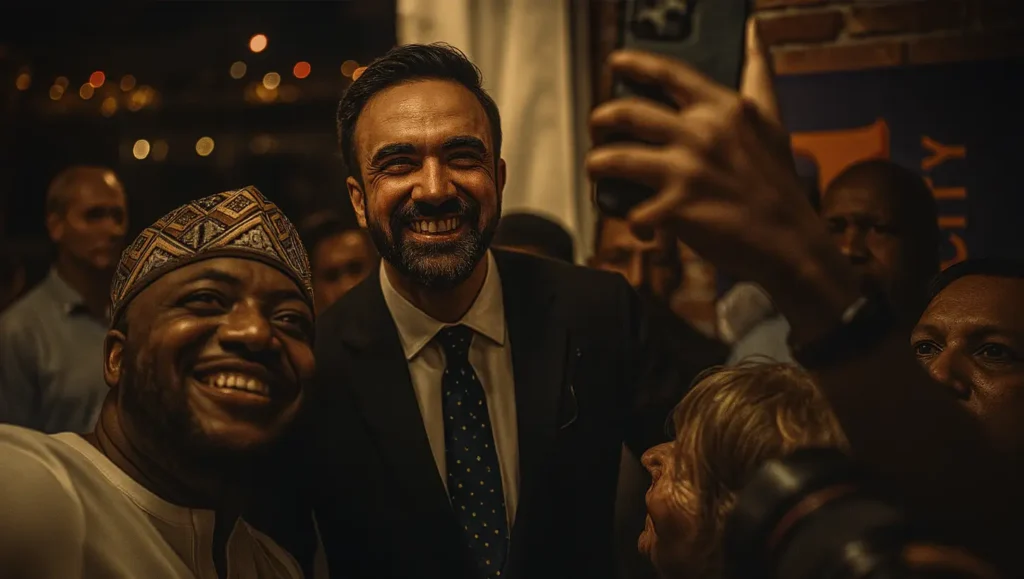
The journey of Mamdani’s family to New York was not direct. After living briefly in Cape Town, South Africa, when Zohran was five, they settled permanently in New York City when he was seven years old. This multicultural upbringing would profoundly shape his worldview and political consciousness. Growing up in a household where discussions of global justice and artistic expression were commonplace, young Zohran developed an early awareness of inequality and injustice that would later fuel his political ambitions.
His educational path reflected both his intellectual curiosity and his emerging social consciousness. After graduating from the Bronx High School of Science, he pursued Africana Studies at Bowdoin College, where he made his first mark as an organizer. It was there that he co-founded the school’s first Students for Justice in Palestine chapter, establishing a pattern of advocacy that would define his political career. He became a naturalized American citizen in 2018, shortly after graduating from college.
Before entering politics, Mamdani worked as a housing counselor, helping low-income homeowners of color fight foreclosure and stay in their homes. This experience provided him with firsthand insight into New York’s housing crisis and the human cost of economic inequality. His brief foray into the entertainment industry included working as a music supervisor on his mother’s film “Queen of Katwe,” though he acknowledged the role of nepotism in securing the position, joking about how “nepotism and hard work goes a long way”.
Audible is an Audio Books Platform, where you can find any audio book of your interests including Stories, Histories and much more. Try Audible 100% FREE for 30 days, Click Here to Subscribe today .

The Assemblyman’s Rise
Mamdani’s entry into electoral politics came in 2020 when he challenged four-term incumbent Aravella Simotas for the New York State Assembly seat representing the 36th District in Queens.Running as an outsider with limited resources, he defeated the establishment candidate and took office in 2021, representing the diverse neighborhoods of Astoria, Ditmars-Steinway, and Astoria Heights.
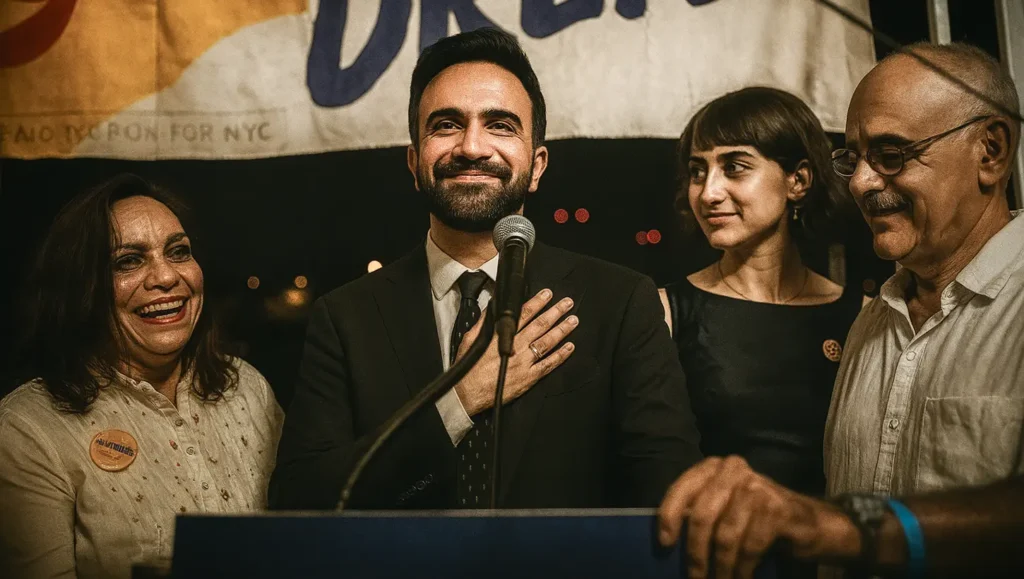
During his three years in the Assembly, Mamdani established himself as a progressive voice on housing, transportation, and energy issues. His legislative priorities included housing reform and expanding public transportation access. Notably, he successfully advocated for New York’s first fare-free bus pilot program on five lines across the city, demonstrating his ability to turn progressive policy ideas into tangible results. He also joined fellow taxi drivers in a hunger strike to achieve more than $450 million in transformative debt relief and secured over $100 million in the state budget for increased subway service.
A Campaign Built on Affordability and Change
When Mamdani announced his mayoral candidacy on October 23, 2024, he was largely unknown outside progressive political circles. His campaign began with minimal name recognition and modest financial resources, facing a field that would eventually include the formidable Andrew Cuomo, who brought significant institutional support and a $25 million super PAC.
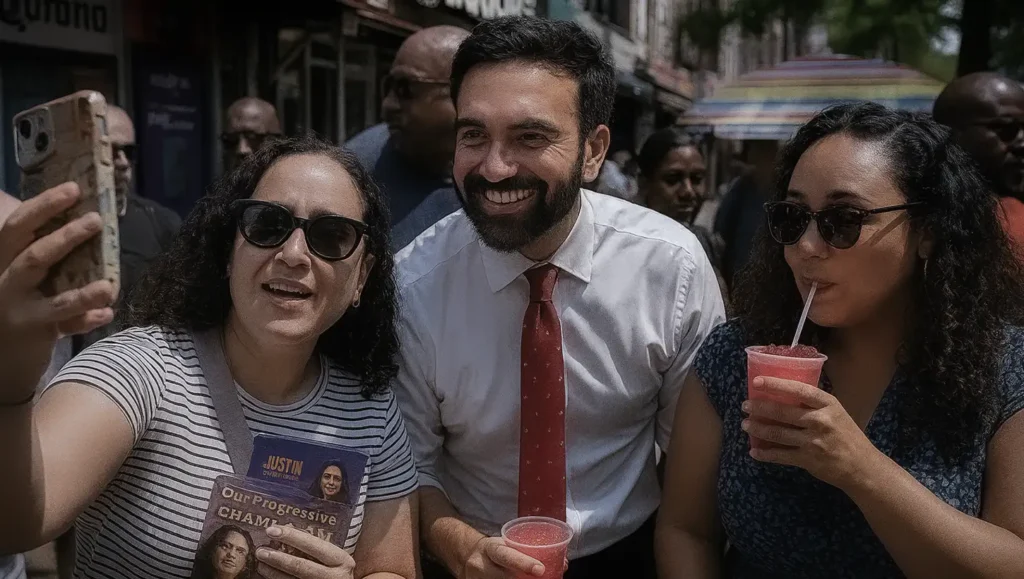
Mamdani’s campaign platform addressed the core issue affecting most New Yorkers: affordability. His signature proposals included an immediate freeze on rents for rent-stabilized apartments, which house over two million New Yorkers. He pledged to construct 200,000 new affordable, union-built, rent-stabilized apartments over the next decade and to expedite approvals for affordable housing projects.
Transportation emerged as another central pillar of his agenda. Building on his successful advocacy for the fare-free bus pilot program, Mamdani proposed eliminating fares on all city buses while making them faster through dedicated priority lanes, expanded bus queue jump signals, and designated loading zones. His transportation vision extended beyond buses to include comprehensive improvements to the city’s transit infrastructure.
Perhaps his most innovative proposal involved establishing city-owned grocery stores in each borough. These stores would operate without paying rent or property taxes, allowing them to purchase and sell goods at wholesale prices while partnering with local vendors to keep costs low. The proposal aimed to address food insecurity and provide relief from what Mamdani termed “price gouging” by corporate grocery chains.
To fund these ambitious programs, Mamdani proposed a 2% tax on residents earning over $1 million annually and raising the corporate tax rate to 11.5%. He also pledged to increase New York City’s minimum wage to $30 by 2030, with automatic adjustments based on cost-of-living changes.
GROUND NEWS is a platform, where you can get latest news side by side from different news sources. Get 40% Discount Click Here
Building a Grassroots Movement
What distinguished Mamdani’s campaign was its grassroots character and innovative approach to voter engagement. Rather than relying on traditional political machinery, his team built a volunteer-driven operation that knocked on over one million doors across the city. This multilingual, multicultural movement attracted young voters and first-time participants who had felt disconnected from conventional politics.
Mamdani’s use of social media proved particularly effective in reaching younger audiences. His campaign produced viral content highlighting everyday affordability issues, from rising rent costs to what he dubbed “halalflation” at New York City’s halal carts. These videos resonated with voters experiencing the daily reality of New York’s affordability crisis, helping to transform abstract policy proposals into relatable concerns.
The campaign’s momentum accelerated as election day approached, fueled by high-profile endorsements from progressive leaders. Senator Bernie Sanders praised Mamdani for building “a grass-roots movement fueled by everyday people, committed to fighting oligarchy, authoritarianism and kleptocracy”. Representative Alexandria Ocasio-Cortez provided another crucial endorsement, stating that “Mamdani has demonstrated a real ability on the ground to put together a coalition of working-class New Yorkers that is strongest to lead the pack”.
The Primary Victory That Stunned New York
The June 24 primary results defied virtually every prediction. With 96% of ballots counted, Mamdani secured 43.5% of first-place votes compared to Cuomo’s 36.3%. The margin was decisive enough that Cuomo conceded defeat on election night rather than waiting for the ranked-choice voting process to conclude.
Mamdani’s victory speech, delivered shortly after midnight at a gathering in Long Island City, captured the historic nature of his achievement. “Nelson Mandela once said: it always seems impossible until it’s accomplished. Friends, it is accomplished,” he declared. “I will be mayor for every New Yorker, including those who voted for me and those who voted for someone else. I will advocate for a city that is functional, affordable, and secure for everyone”.
The demographic breakdown of the vote revealed the breadth of Mamdani’s appeal. He performed strongly in Queens, Brooklyn, and much of Manhattan, while Cuomo carried the Bronx and Staten Island. Particularly significant was Mamdani’s late-stage surge among Latino voters, with support doubling from 20% to 41% in the final weeks of the campaign.
Navigating Controversy and Criticism
Mamdani’s primary campaign was not without controversy, particularly regarding his positions on Israel and Palestine. As a vocal critic of Israeli policies in Gaza, he has characterized Israel’s military actions as genocide and advocated for equal rights rather than a specifically Jewish state.His college activism included founding a Students for Justice in Palestine chapter, and as an assemblyman, he introduced legislation to strip nonprofit status from organizations linked to Israeli settlements.
During the campaign, critics, including pro-Cuomo super PACs, attempted to portray these positions as antisemitic, particularly highlighting his refusal to condemn calls to “globalize the intifada” during a podcast appearance. When pressed by Stephen Colbert on “The Late Show” about whether Israel had the right to exist, Mamdani responded: “Yes, like all nations, I believe it has a right to exist – and a responsibility also to uphold international law”.
In his victory speech, Mamdani addressed these concerns directly, pledging to work with those who disagreed with his views. “While I will not abandon my beliefs or my commitments, grounded in a demand for equality, for humanity, for all those who walk this earth, you have my word to reach further, to understand the perspectives of those with whom I disagree, and to wrestle deeply with those disagreements”.
The Path to November
Mamdani’s primary victory sets up what promises to be a competitive general election on November 4, 2025. Unlike the primary, the general election will not use ranked-choice voting, creating a different strategic landscape. He faces a multi-candidate field that includes incumbent Mayor Eric Adams, who chose to run as an independent rather than participate in the Democratic primary following his federal corruption indictment and subsequent case dismissal.
Republican candidate Curtis Sliwa, who lost to Adams in 2021, secured the GOP nomination unopposed. Additionally, independent candidate Jim Walden and potentially Andrew Cuomo, who has indicated he may run as a third-party candidate, could appear on the November ballot.
Despite the multi-candidate field, Mamdani enters the general election as the favorite. In heavily Democratic New York City, where registered Democrats outnumber Republicans by eight to one, the Democratic nominee typically wins the mayoral race. Betting markets reflected this reality, with Polymarket giving Mamdani a 73.6% chance of victory, compared to 19.4% for Adams and 4.9% for Cuomo.
Economic and Political Reactions
Mamdani’s victory immediately triggered reactions across various sectors. Wall Street responded nervously to his progressive agenda, with shares of companies linked to New York City real estate falling as investors contemplated the impact of his proposed rent freeze. The report of Bloomberg noted some concern about his plans to freeze rents and increase taxes on corporations and the rich tycoon residents of the city.
Leading economists, however, rallied to support Mamdani’s platform. A group of international economists has endorsed him for mayor, and describing it as “a bold yet practical blueprint to tackle some of New York City’s most urgent challenges”. They specifically praised his rent freeze proposal and expansion of free bus service, noting that the existing fare-free pilot program had increased ridership by more than 30% while reducing violence against bus drivers.
Progressive organizations celebrated the victory as a potential turning point for American politics. Justice Democrats described it as “a groundbreaking achievement” that demonstrated “the potential is limitless for genuine progressives willing to unite the working class against the interests of billionaires and corporate super PACs”.
Historical Significance and Future Implications
If elected in November, Mamdani would make history in multiple ways. He would become New York City’s first Muslim mayor, its first mayor of Indian origin, and at 34 (he turns 34 in October), the youngest mayor in over a century. The last mayor to assume office at such a young age was John Purroy Mitchel, known as the “Boy Mayor,” who took office at 34 in 1914.
Mamdani’s rise reflects broader generational and ideological shifts within the Democratic Party. His victory parallels Alexandria Ocasio-Cortez’s stunning 2018 congressional primary victory, suggesting that progressive politics can successfully challenge establishment candidates even in high-profile races. The success of his grassroots, small-donor campaign against Cuomo’s well-funded operation demonstrates the potential for movement politics to overcome traditional advantages of name recognition and financial resources.
Political analysts note that Mamdani’s victory could have implications far beyond New York City. As New York Times political reporter noted, “If he wins in November, Mamdani would become the first Muslim mayor of the city. He has been an outspoken critic of Israel’s actions in Gaza and has not shied away from accusations of antisemitism”. His success while maintaining strong progressive positions on both domestic and international issues could encourage similar candidates nationwide.
The victory also represents a significant moment for the Democratic Socialists of America, of which Mamdani is a proud member. His success provides a high-profile example of democratic socialist politics achieving mainstream electoral success in America’s largest city, potentially influencing political discourse and strategy across the country.
Looking Ahead
As Mamdani transitions from primary victor to general election candidate, he faces the challenge of maintaining his progressive base while appealing to a broader electorate. His primary campaign demonstrated remarkable organizing ability and message discipline, qualities that will be tested in the more complex general election environment.
The economic feasibility of his ambitious policy agenda remains a point of debate. Critics question whether the city can afford his proposed programs, while supporters argue that his targeted approach to taxation and spending represents a sustainable path toward addressing New York’s affordability crisis. The success or failure of his existing pilot programs, such as the fare-free bus service, may provide early indicators of his policies’ practical effectiveness.
Internationally, Mamdani’s positions on Israel and Palestine will likely continue to generate attention and controversy. His ability to navigate these issues while governing a diverse city with significant Jewish and Muslim populations will be closely watched, potentially setting precedents for how American politicians handle complex international conflicts.
Zohran Mamdani’s journey from obscure assemblyman to presumptive Democratic nominee represents more than a personal political triumph. It embodies a broader transformation in American politics, where grassroots organizing, progressive policy positions, and authentic connection with voters’ daily struggles can overcome traditional political advantages.
Whether this transformation extends beyond New York City may depend on how effectively Mamdani governs if elected, making his potential mayoralty a closely watched experiment in progressive urban leadership.As New Yorkers prepare for the general election, Mamdani’s remarkable primary victory has already reshaped the political landscape, offering a compelling example of how political outsiders can build movements capable of challenging entrenched power structures. His success story continues to unfold, carrying implications that extend far beyond the boundaries of America’s largest city.
Watch the Documentary on the History of American with IRAN
Read Article on Trump Bombing Iran: The Red Line Crossed? Click Here
